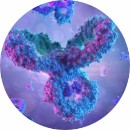Therapeutic Antibody Development Services
Inquiry
Antibody therapies are a large and rapidly expanding class of drugs that can provide significant health benefits. Alfa Cytology offers therapeutic antibody development services, to provide clients with different forms of therapeutic antibodies for cancer therapy.
 Fig.1 Antibody-based therapeutics for oncology. (Carter, P. J., & Rajpal, A., 2022)
Fig.1 Antibody-based therapeutics for oncology. (Carter, P. J., & Rajpal, A., 2022)
Therapeutic Antibody for Cancer Therapy
More than 100 antibody-based therapies are now approved for a wide range of serious human diseases, with cancer being one of the most successful cases of antibody therapies. Most of the approved antibodies are in IgG form, and a number of alternatives are emerging, including antibody-drug couplings (ADCs), domain antibodies, bispecific antibodies (BsAbs), IgG mixtures, and antibody fusion proteins.
| Targets of Therapeutic Antibodies |
Examples |
| B-cell Lineage Markers |
|
| Growth Factor Receptors |
- Epidermal growth factor receptor (EGFR)
- Human epidermal growth factor receptor 2 (HER2)
|
| Immune Checkpoint Inhibitors |
- Programmed cell death protein 1 (PD-1)
- Programmed death ligand 1 (PD-L1)
|
| Angiogenic Growth Factors |
- Vascular endothelial growth factor (VEGF)
|
Our Services
The success of antibodies in oncology therapeutics has inspired significant efforts to develop next-generation anticancer antibodies that can improve response rates or extend the duration of responses. Alfa Cytology offers a diverse range of therapeutic antibody development services to provide customers with different forms of anticancer antibodies.

Therapeutic Monoclonal Antibody
Targeting specific molecules or receptors on cancer cells to block cancer cell growth signals and promote immune-mediated killing.

Therapeutic Polyclonal Antibody
Coverage of a wider range of cancer cell targets, enhancement of anti-cancer immune responses, and improved efficacy of cancer therapies.

Therapeutic Multispecific Antibody
Simultaneously targeting multiple cancer-associated antigens or pathways, it overcomes cancer resistance mechanisms, thereby increasing therapeutic potential.

Therapeutic Antibody Fragment
As a mini-engineered version of the antibody, it offers potential advantages such as improved tissue penetration, reduced immunogenicity, and easier production.

Antibody Drug Conjugate (ADC)
Combines the targeting ability of an antibody with a cytotoxic payload linked via cleavable or non-cleavable junctions.

Antibody-Toxin Conjugate (ATC)
Optimized techniques are used to precisely link the potent toxin to the target antibody to ensure the stability and functionality of the ATC.

More
Utilizing our professional antibody development platform, we provide diversified therapeutic antibody development services for our clients.
One-stop Therapeutic Antibody Development
Alfa Cytology, a leading CRO, offers a comprehensive range of services for streamlined antibody development, serving as a convenient one-stop solution.

Antigen Development Service
High-quality antigens are used to stimulate the immune system to produce specific antibodies to facilitate the development of targeted immunotherapies for cancer.

Antibody Discovery Services
Advanced technologies such as phage display, hybridoma technology, or single-cell sequencing are used to identify and isolate novel antibodies with high affinity and specificity against cancer-specific targets.

Antibody Optimization and Engineering Service
Modify and improve the properties of therapeutic antibodies to enhance their efficacy, stability, and safety in order to optimize the therapeutic potential of antibodies in cancer treatment.

Antibody Characterization Service
Antibody characterization services provide comprehensive analysis and evaluation of an antibody's binding specificity, affinity, stability, and pharmacokinetic properties.
Workflow of Therapeutic Antibody Development
Target Identification
Identifying potential target molecules that are involved in the disease pathway through genomics and proteomics.
01
Target Validation
The identified targets are further validated to ensure their relevance and suitability as therapeutic targets.
02
Antibody Generation
Generation of specific anti-cancer antibodies using hybridoma technology, phage display, and transgenic animals.
03
Lead Antibody Selection
Functional assays and engineering techniques are applied to optimize their therapeutic potential.
04
Preclinical Studies
Efficacy, safety, pharmacokinetics, and pharmacodynamics are tested in relevant disease models.
05
Nowadays, tremendous progress has been made in antibody-based cancer therapies. Alfa Cytology is providing a solid foundation for potential novel therapies by facilitating the development of therapeutic antibodies. Please contact us for more information.
Reference
- Carter, P. J., & Rajpal, A. (2022). Designing antibodies as therapeutics. Cell, 185(15), 2789-2805.
For research use only.
Related Services



 Fig.1 Antibody-based therapeutics for oncology. (Carter, P. J., & Rajpal, A., 2022)
Fig.1 Antibody-based therapeutics for oncology. (Carter, P. J., & Rajpal, A., 2022)










